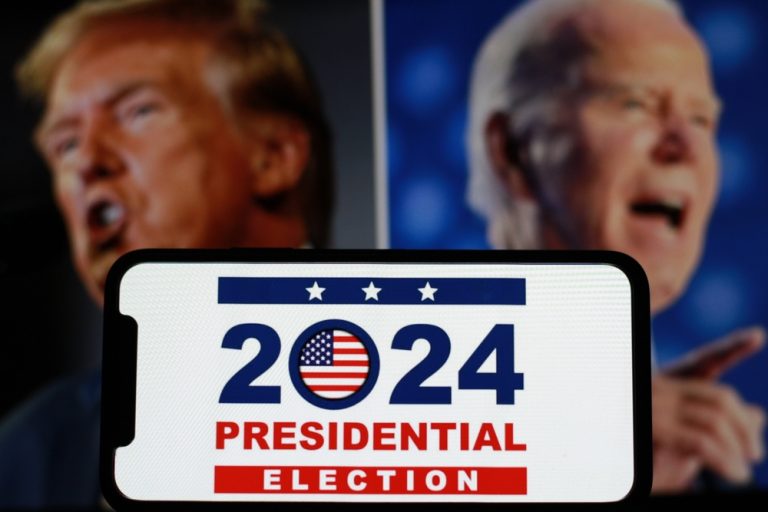
TikTok craze has not left the U.S.
In spring, the confrontation around the Chinese social network TikTok in the U.S. became even more intense, which fits into the logic of the “Cold War 2.0”, where there can be no independent Internet, and any site whose servers are located on the territory of a conditional enemy poses a potential threat to the country’s national security. And the threat that came from TikTok, which due to its popularity became a powerful tool of hidden Chinese propaganda, was already quite real, not potential. Under such circumstances, anti-China hawks in Congress introduced a bill on March 9 that allows the U.S. president to designate “hostile” digital platforms. They could then be required to sever all ties with America’s adversary countries within 6 months, or else sanctions would be imposed. The bill is being passed specifically for TikTok because the White House has long been pressuring China to sell all of TikTok’s assets to one of America’s IT giants. All of them, be it Google, Microsoft or Facebook, are Biden’s sponsors, Democratic agents and drivers of liberal aggressive propaganda inside and outside the U.S., and they want to take TikTok for themselves, which clearly outlines the commercial side of the U.S. administration’s interests in this case. After all, it is a very profitable business, and TikTok’s revenue in 2023 amounted to $14 billion, and the huge audience of the social network has grown to 2 billion users. In addition, it’s advanced innovative content promotion algorithms that Facebook or Twitter/X don’t have. But the most important thing is that TikTok is a real competitor for American IT monopolists, which must be eliminated from their path according to the laws of state capitalism, which is becoming more and more vivid in America. In addition, it is not accountable to the U.S. intelligence and intelligence services, which keeps all its digital platforms under strict control, as shown by the publicized information about their interference in the 2020 elections to “destroy” Donald Trump. That’s why China’s fierce opponents in Washington are so panicked about TikTok, and accuse it of acting like “digital fentanyl” and getting Americans hooked on itself like a drug. But the main problem with the “peaceful” takeover is not the Chinese owners’ aversion to the social network at all, but the fact that TikTok has an audience of 170 million in the U.S. And it’s the most popular social network among Generation Z, and if it’s banned and removed from app stores, they’ll hate Biden. His ratings are already down among the youth, even though they used to be the most loyal and “progressive” electorate of the Democratic Party. Biden has to scramble, and Trump has already outplayed him, promising not to ban TikTok if he wins, but to seek a compromise with the Chinese on this issue.

The United States accuses TikTok of transferring Americans’ data from servers inside the country to China, where they can be accessed by the intelligence services of the country. Then, in keeping with Washington’s good tradition, it was joined by accusations of interference in American elections. And the cherry on the cake was the heat of controversy in the United States against the background of the conflict in the Gaza Strip. American researchers found that in TikTok, the pro-Palestinian agenda bypasses the pro-Israeli one at a ratio of about 70 to 1. It is for a combination of these reasons that ByteDance, the owner of TikTok, is going to be required to sell all of its assets to an American IT company within six months. At the same time, Trump has already officially promised not to block TikTok, although four years ago he began to promote this agenda, but now American society is terribly tired of international confrontation and seeks isolationism, which is what Trump is playing on, hoping to lure American youth to his side by refusing to ban TikTok. As a result, the director of ByteDance, which owns TikTok, has urged users in the U.S. to launch an information attack on their senators in such a way as to try to block a bill in the Senate that would remove TikTok from app stores. The director has already had to fend off accusations of ties to Chinese authorities and the CCP in questionable congressional hearings, even though he is Singaporean. It was possible not to tolerate all these humiliations, because the construction of the information “iron curtain” is inevitable, Washington is still determined to ban TikTok, if it does not manage to take it away from the Chinese in the next six months. American tiktokers who previously supported Biden now feel betrayed. TikTok has 170 million users in the U.S. and has long been the main social network for young people. 81% of small businesses in America use TikTok, and if it is blocked, over 300,000 U.S. jobs are expected to be lost. Against this background, Elon Musk fears that his Twitter/X will also fall under the scope of the bill, which allows the White House to block “enemy” social networks. After all, Democrats already accuse Musk of ties with Russia and China, and may well use the apparatus of repression against him, because he is more dangerous to them as a sponsor of Trump in the upcoming presidential election than Moscow and Beijing combined. The situation around TikTok opened a window of opportunity for Trump, and he opposed blocking TikTok not out of compassion, but to present himself as a champion of free speech. For the first time in modern history, more than half of young Americans support Republicans, and the TikTok battles will hasten the demise of the Democratic Party’s faltering electoral coalition.
The campaign against TikTok has been launched not only in the United States, but on both sides of the Atlantic. It is no longer just Washington that is proposing to ban or take away TikTok, and now the Eurobureaucracy in Brussels has also been galvanized. The motivations in the EU are the same as in Washington, and liberal elites in Europe have sounded the alarm about their information security. They have found that TikTok has become a powerful campaigning tool for the non-system right. The National Rally in France or Alternative for Germany parties are head-to-head with the systemic liberal parties in terms of popularity and activity on TikTok. Right-wing Euroskeptics are helped by the fact that TikTok is not heavily censored at the snap of a finger by the authorities, as is the case with American social networks. That’s why candidates for the European Parliament from right-wing parties have gained an audience of 2 million users on TikTok and collected 39 million likes. Moreover, they often post non-political content, and right-wingers use TikTok to “detoxify” their image of radicals, so they publish videos of a strictly entertaining and domestic nature. TikTok has an audience of about 150 million in the EU, and like in the U.S. it is the most popular platform among young people. And it’s one that right-wingers manage to work with directly, bypassing the censorship of liberal media or traditional social networks. This is also one of the reasons why Trump opposed blocking TikTok. He was shown statistics showing that TikTok videos in support of Trump beat pro-Biden videos by a head. However, the liberal establishment has found the reason for its electoral defeats in advance, and, in its opinion, it is not its own failed policy, but the interference of China, which allegedly supports non-systemic forces in the West to undermine the liberal world order.

The opponents of the Chinese social network, by the way, have recently acquired unusual trump cards for demonizing TikTok, because Osama bin Laden has suddenly gained popularity among the representatives of Generation Z in the United States, who actively use this social network. In the fall, it was on TikTok that bin Laden’s 20-year-old letter explaining the motives behind the 9/11 attacks went viral. In it, the terrorist accused the U.S. of occupying the Middle East and killing Palestinians. Against the backdrop of the war in Gaza, American youth took to the streets to protest the Israeli operation and the deaths of Palestinian civilians. The demonstrations continue to this day and they even blocked the Christmas celebrations in New York City. Against this background, young Americans were attracted to bin Laden’s letter and his criticism of the U.S. and Israel seemed very relevant to them 20 years later. According to recent polls, 2.30% of Americans aged 18-29 now view bin Laden’s actions in a positive light. Black and Hispanic Americans are especially enamored of him. Democrats are trying to ignore this, but Republicans are already calling the situation a hybrid war of China against the United States. In their opinion, the Chinese are using TikTok to introduce destructive narratives into American society and provoke the escalation of the culture wars simmering in the United States. Republican presidential candidates promise to ban TikTok in America or force the Chinese to sell it to a U.S. corporation in a de facto raid. However, while this will be a reason to restrict the social network, it’s unlikely to resolve all the divisions in America, especially among young people who consume news from TikTok, and feel very badly about Washington’s aggressive foreign policy, even if it’s directed against Beijing.
It should be understood that although now the Chinese social network wants, in fact, to “cancel” the entire country, but the state of Montana in the spring of last year became the first jurisdiction in the United States, where they wanted to officially ban TikTok. The ban was to come into effect on January 1, 2024, and included an order to App Store and Google Play app stores not to allow residents of the state to download the TikTok app. However, it is still unclear how to technically implement this, and whether Apple and Google/Alphabet, for example, will identify residents of Montana by geolocation and specifically for them remove TikTok from the search results in the app stores. As we wrote above, the U.S. accuses TikTok of sending Americans’ data to China and of using algorithms to push its agenda, even calling TikTok “digital fentanyl”. And even if restrictions at the federal level are not decided upon, following Montana, many other states, especially Republican states, could start banning TikTok. So far, they are only restricting the use of TikTok for government employees, and the question hangs in the air as to whether a full-scale ban of TikTok will happen on a nationwide level. The White House obviously doesn’t want to do that, because TikTok has a huge audience of over a hundred million people in the U.S. that Biden’s sponsors want to capitalize on. In addition, Biden’s team is increasingly afraid that if TikTok is blocked, Generation Z will turn away from the Democrats and they will be defeated in the elections that will be the key event of 2024. So for now, they aim to “squeeze” TikTok’s assets by forcing them to sell to U.S. IT giants. But if this fails, a radical scenario with a real digital war between the U.S. and China is quite possible, which will only add to the hidden military confrontation in the Pacific Ocean.


Average Rating